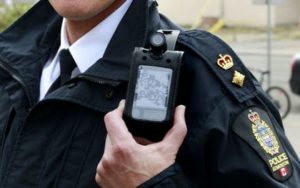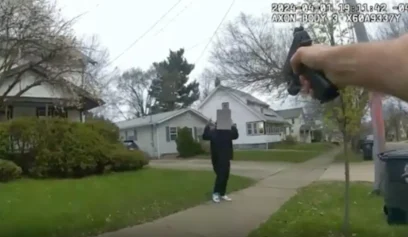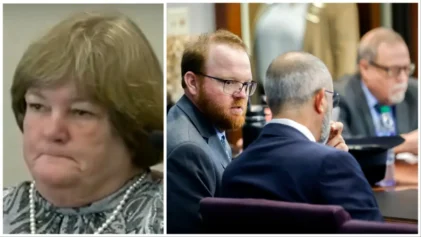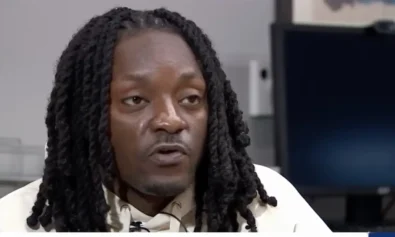
Police body camera. Image courtesy of (c) Taser.com.
Thanks to a mandate from Boston’s police commissioner, 100 of the city’s finest officers will soon be sporting body cameras.
According to the Boston Globe, Police Commissioner William B. Evans was forced to assign body cams to his officers after none of them volunteered to participate in the city’s body cam pilot program.
Evans announced his plan Tuesday during a monthly “Ask the Commissioner” segment on WGBH-FM’s Boston Public Radio. The commissioner explained that a consultant would assist in randomly selecting officers of all ages and racial backgrounds to participate in the program. The officers will be picked from five areas of the city and are required to wear the cameras for a six month trial. According to Evans, any officer who refuses to wear the body camera will be subject to disciplinary action.
Training is expected to begin next week, and the commissioner said he hopes to have his officers equipped with the body cameras by September.
The Boston Globe reports that Mayor Martin J. Walsh and Evans reached an agreement with Boston’s largest police union last month to outfit officers with the cameras on a voluntary basis. To sweeten the deal, program participants were promised a $500 stipend for their cooperation. Yet still, not one officer volunteered.
“Our agreement said it’s voluntary, but it didn’t rule out the fact [that] if we didn’t get officers that we could take action,” Walsh explained Tuesday. “That’s what we’re doing now. We’ve been talking about it now for a long time, we’ve been doing a lot of work and research on the background of this program, looking at other cities around America that have them, and we’re going to take the next step now.”
During his radio segment, Evans said he’s expecting there to be some push back from the department’s unions. He admitted that the body cams might be a “hard sell” for some.
“But that’s what the union does, they look out for their membership,” Evans said. “Unless a court stops it, right now that’s the way we’re going.”
Officials confirmed last month that the Boston Police Patrolmen’s Association was one of the unions that agreed to the six-month pilot program, CBS News reports. The city and other police associations are still in the middle of negotiations.
Evans said he believes some unions have been reluctant to engage in conversations about the use of body cameras due to the recent attacks on officers in Dallas and Baton Rouge. Those attacks were sparked by the police shootings of Black men in Louisiana and Minnesota.
Evans said it’s older officers who are most hesitant about wearing the body cams. In turn, he told them that “we have nothing to hide.”
The city brought in Anthony Braga as a police department consultant to select the 100 officers who will be wearing the cameras. Per the Boston Globe, Braga also serves director of the School of Criminology and Criminal Justice at Northeastern University. He and his team will review the results of the six-month program before officials decide whether to continue utilizing the cameras.
Since the fatal shooting of Michael Brown by police in Ferguson, Missouri, activists all over the country have been pushing police departments to equip its officers with body cameras. The Boston Globe states that the city’s announcement of a voluntary pilot program had civil rights advocates worried that only good cops would sign up, thus distorting the program results. However, activists still expressed satisfaction with the commissioner’s push to involuntarily outfit officers with body cameras.
“They’re coming,” Segun Idowu, co-organizer of the Boston Police Camera Action Team community group, said of the body cams. “And they can’t do anything about it.”
The discourse over body cameras hasn’t been all good though. The recent police shooting of a Black teen in Chicago showed that the tiny devices can be problematic – especially when officers choose not to turn them on or purposely leave them off.
According to Atlanta Black Star, a Chicago officer shot and killed Paul O’Neal, 18, after he was suspected of stealing a car. Video of two other officers attempting to shoot O’Neal was captured on the police dash cam. However, the body camera of the officer who ultimately shot the young man “wasn’t working at the time of the incident.”
The Independent Police Review Authority eventually released footage of the tragic shooting. On it, one the officers was heard imploring his officers to shut off their body cameras.
Incidents like this are cause for concern and only serve as another reason for the critical need for police body cameras.


